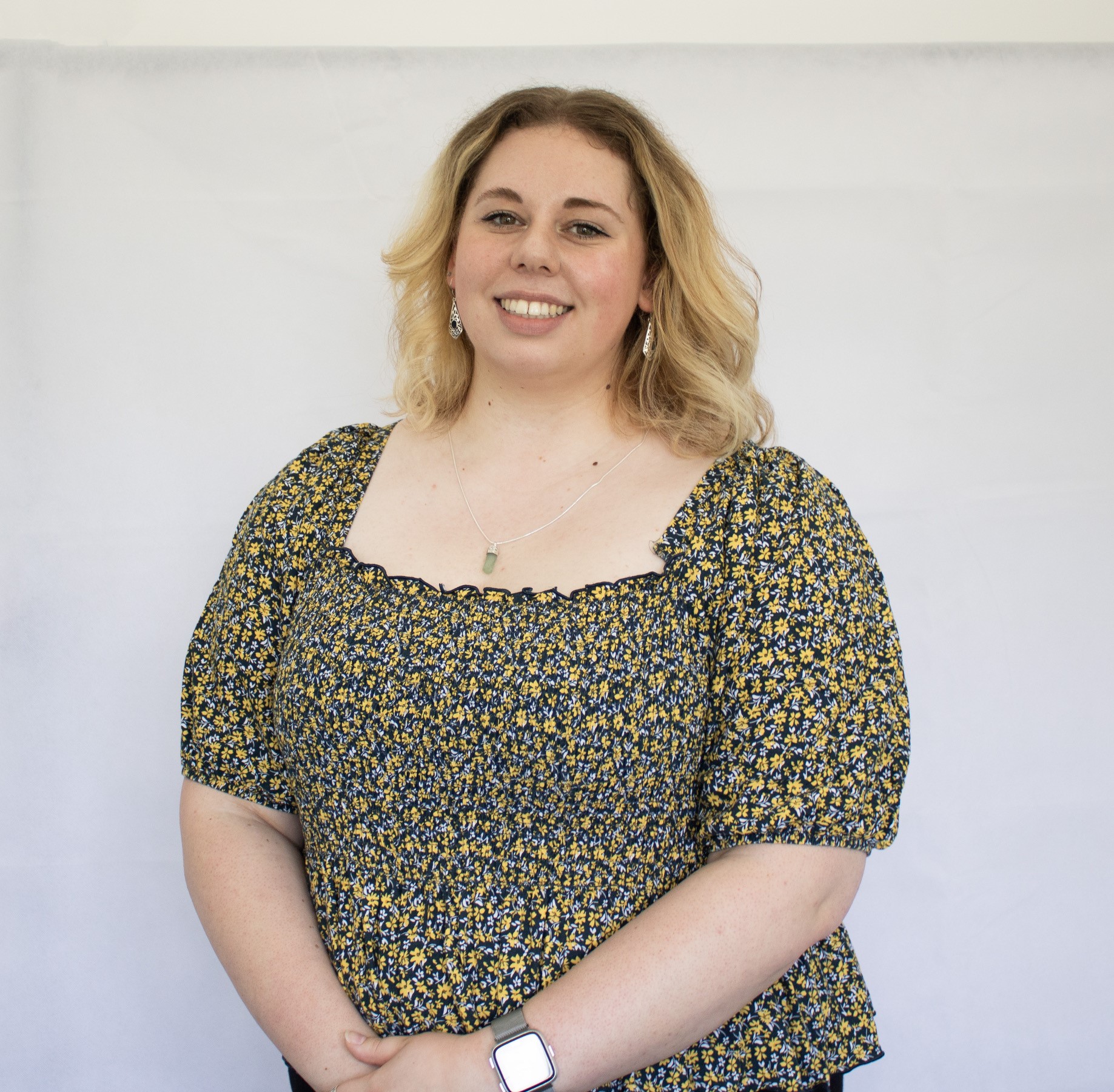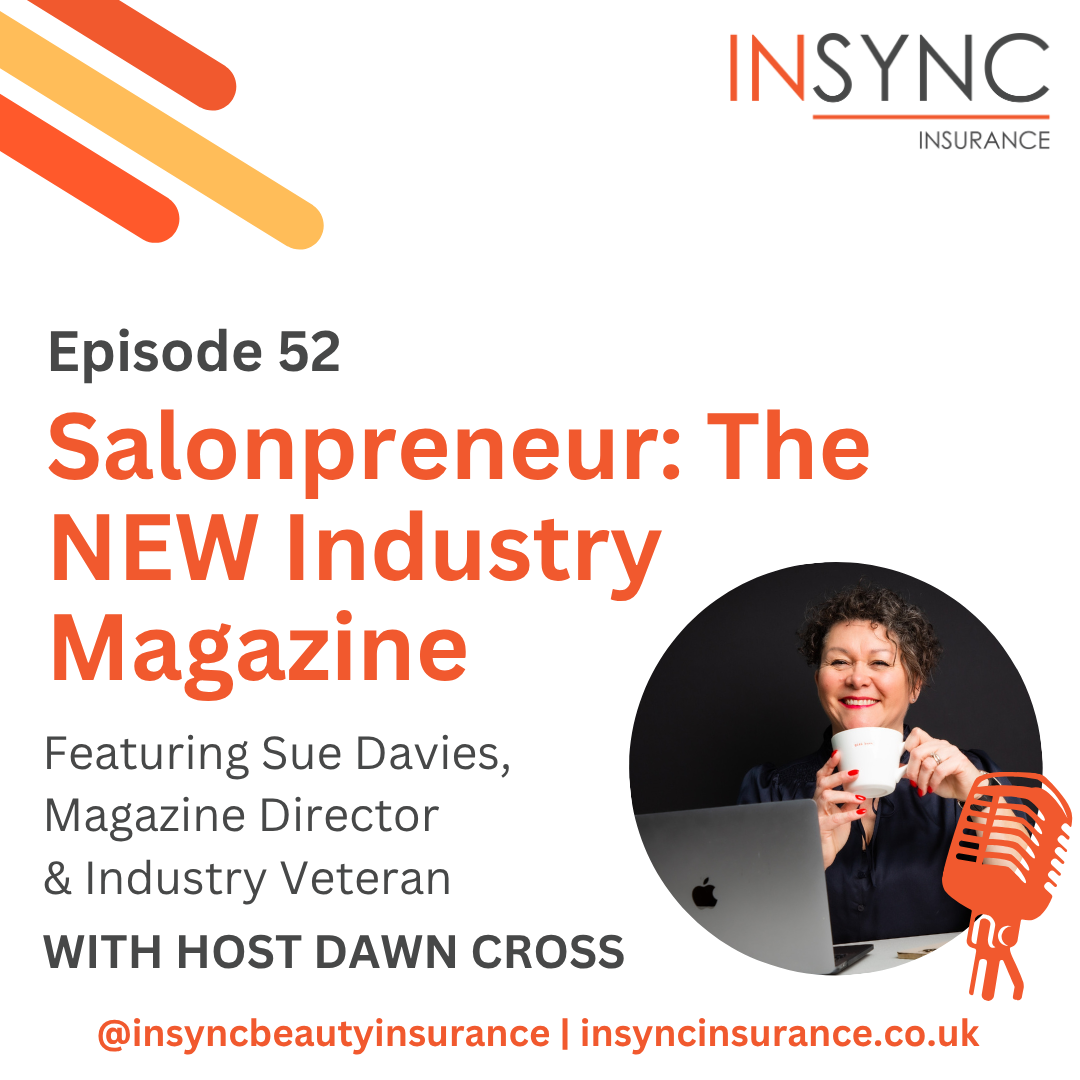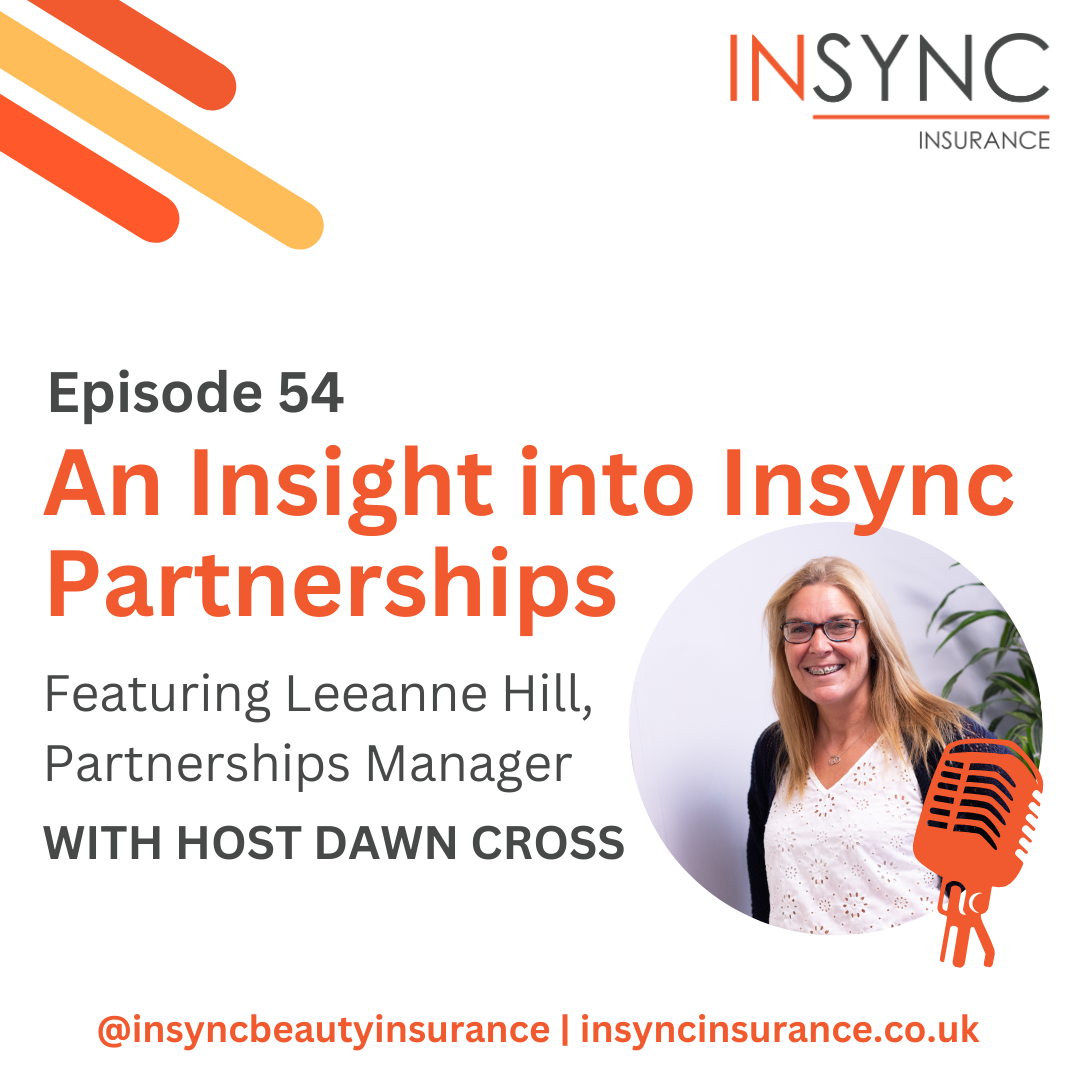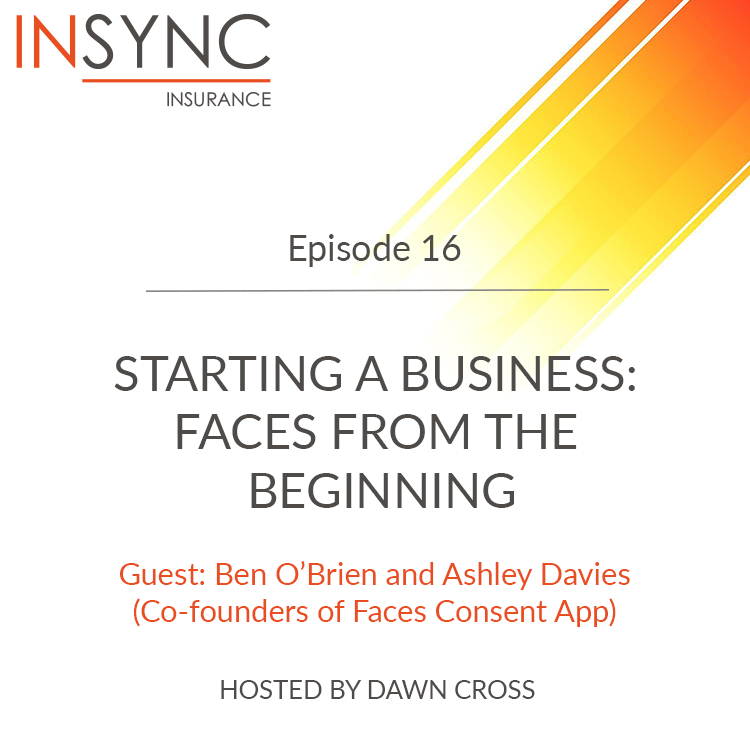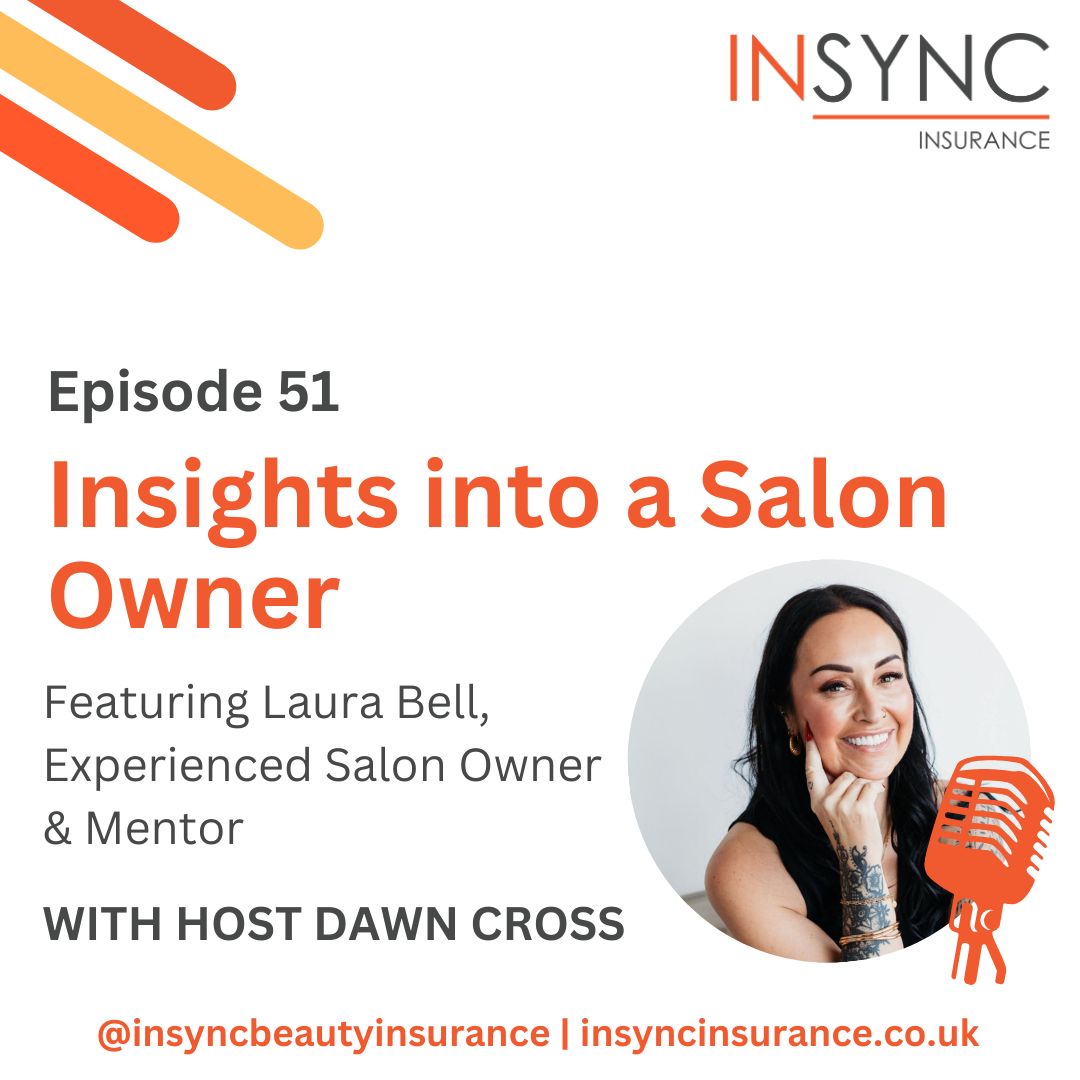Episode Transcript
[00:00:02] Speaker A: Welcome to the Insync Assurance Podcast. I'm your host, Dawn Cross, and today I'll be chatting about being accessible in hairdressing with Jo Haywood, the signing hairdresser and qualified BSL signer.
If you enjoy our podcast, make sure to leave a rating on your favourite podcast directory.
[00:00:21] Speaker B: Well, thank you so much for coming on today. Could you start by introducing yourself and what you get up to?
[00:00:28] Speaker C: Hello. Thank you for inviting me to be here. So, I'm Jo Heywood and I'm a hairdresser. I work in London, in Kensington, in a salon, and I offer signing care appointments for the deaf and hard of hearing. So rather than scribbling down notes and struggling to understand each other, I speak to them in British Sign language, which helps so much with the consultation and also for them to feel confident and comfortable throughout the whole time that they're in the salon with me.
[00:00:56] Speaker B: That's amazing. So what is the benefits of being an inclusive hairdresser?
[00:01:01] Speaker C: Well, just making people feel good is what we all want to do, right, as hairdressers. Making people happy, making people feel confident is literally why we do what we do. And by being able to be inclusive, that just opens up the gates to be able to do that for more people in so many other ways. So that's the main thing, I think. And also just like, creating some space for people, you know, giving them somewhere to go that they can feel fully understood and included and considered, you know, that's going to make them feel so, so good, so comfortable. So, yeah.
[00:01:34] Speaker B: That sounds amazing. I think as well, it's really important to note that, you know, no matter what disability or what they're feeling, everyone wants to feel good with their own hair.
[00:01:43] Speaker C: Yeah, definitely. And, like, just. I've heard from them so many times, like, before when they've been to other salons and they have had to scribble down notes or like, try and point at pictures and stuff. It just doesn't make them feel confident in the stylist either. Like, not whether they're going to do a good job, but just whether they've understood the brief as such. You know what I mean? Like, they're sitting there thinking, did they understand which part of the picture I was saying I liked? Or. Or not. Like, if they had any questions about my style, are they just guessing because they don't know how to ask me? So. So, yeah, it just makes them feel more part of it. And also to be able to, you know, we're also picky with our hair. There's so many Little things that we like or don't like and they can actually express that. So yeah, it really just helps.
[00:02:25] Speaker B: Sounds amazing. So I guess the big question today is, you know, how can people make their hairdressing services more accessible? Now obviously you have a qualification in BSL and not everyone maybe has the time, the money to do that, but what would you recommend?
[00:02:40] Speaker C: Yeah, definitely. It takes a lot of time and a lot of like patience to learn a whole language, which I fully understand. Not everyone is a either willing to do or have time or money to do.
But there's so many things you can do other than that. So like even just thinking on, on your online business. So like creating online bookings which a lot of places have now, which is great, you know, because being able to bring up callers. Salon isn't necessarily accessible for everybody, so booking online is a big one. And then also like on your Instagram and social media, you know, everyone's making videos and reels. Putting captions on them is the difference between it being an accessible piece of content for them or not and also for you. Like you're actually losing viewers or followers or whatever because you're not making it accessible. So by putting captions on is such a big help and things like that online. But in the salon you could definitely even just learn like one sign like hello or welcome. You know, just break the ice and make them feel instantly like at ease, like, okay, this person does really care and they're really trying to connect as much as they can.
I would say the best thing to help with the consultation would be know these people are either going to book online, maybe on through your DMS or whatever.
Definitely have a little consultation, a written one maybe through your DMs and say like I've seen you've booked to look into the half head highlights or whatever, whatever that is they've booked and maybe get them to send you a picture of their, their current hair and their goal Hair have a little tap back and forth because that's a really easy way to communicate where you can also take a minute to look at it and think before you respond if it doesn't make sense or any questions, you know, there's no pressure, no time pressure, no communication pressure.
So yeah, by doing a little pre consultation before meeting each other, everyone will feel more at ease. Everyone will have much more of an idea of the end goal and what the, what the hair is meant to look like and where you're starting. You know, even talking things like prices you wouldn't want there to be any sort of uncertainty, awkwardness around the pricing because you feel like you can't convey it properly, maybe in person.
So like, you know, writing down notes back and forth, you might be fully booked and feel stressed that you don't have time and therefore rush it. So just taking the time beforehand will definitely help make everyone feel more comfortable.
[00:04:58] Speaker B: No, definitely. And I think as well as key to know is that there's less likely to be a miscommunication or like, you know, know you slightly do a treatment wrong. Or maybe they actually want a really specific kind of style or coloring and it's always brilliant to be able to kind of really solidify that before maybe even step foot in the salon first.
[00:05:20] Speaker C: Yeah, but I mean learning sign language is really like accessible. There's lots of things online you can follow. You don't have to go to a college course and pay loads of money and go once a week or whatever the deal is. You know that I post on my Instagram, I was talking to some hairdressers recently and they really like into it, they want to learn about sign language and like they like, they don't necessarily want to sign up to a full blown course.
Now I'm no teacher or anything, I'm just sharing what I know. And I've been doing like a one sign a day on my Instagram stories which I've added to a little highlight. So just one sign a day. It's so easy to look at and retain and then before you know it, you know, by the end of the year, hopefully people will have learned, you know, a fair few signs.
And even just being able to sign outside with the obviously like the basic things like how to introduce yourself or how to ask certain things, you know, just being able to do a little bit, it might get you out of a little hole if you're in a bit of a stuck situation where you don't know what each other's saying or it just makes, makes it, you know, you put in that extra effort. I obviously think it's such a fun language to learn to use whether you're talking to someone who is deaf or hard of hearing or like in the salon. I've been teaching some of the guys there and like some of my colleagues and every time Craig comes in, he literally says good morning, how are you? And I'm like so good, so nice. And then by doing stuff like that as well, you learn and it will sink in so much quickly and so much more. It's just enjoyable.
[00:06:41] Speaker B: Definitely. I think it's really amazing as well because obviously the more inhabit you get about it, you know, it can be used in other bits of life or even like you end up using it, you know.
My example being that I use some Makaton like when I'm going out with friends in the club because then you can kind of tell where they're going. Instead of shouting in your ear and then causing more ear damage, you could just be like, yeah, I'm going off to the loo. Like are you coming? Are you staying here? And it's, it's such a huge difference and I think honestly should be in everyday life anyway.
[00:07:13] Speaker C: Honestly, it's so helpful whether you're like, even if you're just outside of the building, you know, like finding through a window is so much more easy like say somewhere noisy, you know. Yeah, honestly I think that it is. I think that I read somewhere that they are going to be teaching it in secondary schools or like taking. Maybe it's like an option for a GCSE or something like that. Yeah, yeah. So that's so good because like I say, you can use it in your life in general and even better to use it with people that's their first language and make them feel included in society more. Because also like going to the hairdressers is such a.
Like obviously you're going there for the physical result of your hair being done but also it's such a social atmosphere, you know. But sometimes maybe that's the only conversation someone's had that day. If they're working from home or whatever, you know, don't know what they're doing in their life, maybe they're a bit lonely or they've got problems and they, you know how many people tell us all their life dramas, you know, it's nice to have someone to talk to. So it does really help. And especially for someone that is deaf that's maybe going around where I work in London like all day no one's signing to them. You know, this is like the first interaction that they've had that day and if they know they're going somewhere where they're going to be able to sign and feel connected to someone and understood, they're probably going to really look forward to that and you know that's going to really make their day. So that's pretty cool.
[00:08:32] Speaker B: I think it just as well just probably makes them feel so much more at ease because they, you know, if they have other coping methods they have to deal with people who don't sign, you know, it's A lot of work, it's a lot of effort and at the end of the day, you're at the salon to relax and. And get pampered and have a bit of a makeover.
[00:08:48] Speaker C: Yeah, exactly. And also what I love to do in the salon is like, say I have someone in my chair that's signing. We're quite a social friendly bunch. And I'll chat to the other stylists and their clients and they'll chat and sometimes everybody's laughing and I think to myself, I'll hate for that person that can't hear what's going on, sit there and wonder, like, why are they laughing? What have I missed? Are they laughing at me? Like, what's going on? So I always try and include them in the wider conversation that's going on and if there's a joke, be like, oh, this is what they said, blah, blah. And then they'll laugh and then they'll again, like, feel part of the group and then they'll have something clever to say back and that makes everyone else laugh, you know, so otherwise I'd just be sitting there so lonely and so, yeah, maybe, maybe even thinking, are they laughing at me? Like, I'm sure they get that. I'm sure everyone, whether you're here or not, feels like you see someone with whispering or laughing, you think, God, is that me? Did I do that? So again, like, making them feel at ease and, you know, I'm just making it. The more and more sign language appointments I do, the less of a thing it is, if you know what I mean. Like, it's just a bit of a normal thing. Now in our salon, like, if someone comes in and they see me signing at first, obviously they're like, oh, that's different, that's cool. And then they come in again and maybe I have another sign language appointment and they're just like, oh, there she is doing her sign language, like, baby girl, you know? And I want it to be like that, almost like any other appointment, so that they don't feel sort of one, one out, one of a kind, you know, what's the term? Like, I don't know what the word is, you know, like, don't feel singled out. That's the word. Yes.
[00:10:25] Speaker B: That was absolutely amazing. Well, is there anything else or any other bits of advice you'd like to add for any hairdressers listening out there?
[00:10:34] Speaker C: I would say as long as you're approaching everything with kindness, an open mind, no matter how much you can sign someone, like, they'll be able to read just who you are. So if you're happy to have someone in your salon that can sign, if you have to learn a little bit, that will go a long way. But yeah, just, just start, just, you know, start welcoming everybody in and honestly, because when I first started, I was not as good as signing as I am now and I'm still not amazing, you know, like, I watched back videos, I think, oh, I don't know if that was the right side. I just did and I was so nervous. But even then when I started, and that was like two, maybe three years ago now, and yeah, I started signing, I had my first client and I was thinking, I just don't know if they're going to be like, she doesn't even know what I'm saying, or whatever. So.
And then the more I did it, the more I learned, like learning. You learn so much through people know, the more appointments I had, the more confident I felt. And then they'll sign something, I don't know and everyone's so, so nice, like, if I ever say, oh, like, stop them, like, sorry, what was that? They'll like finger spell the word and they'll basically teach me a new sign. So that makes me a better signer and makes me more confident. So you don't have to be perfect to start, is what I'm trying to say. Because I definitely still have not and definitely wasn't at the beginning.
[00:11:54] Speaker B: It is like learning any kind of language, isn't it? It's going to take time before you're technically very fluent or can use it on a regular basis all the time sort of thing.
[00:12:03] Speaker C: Yeah, exactly. And the more you do it, the better you get. And that's like everything in life, isn't it?
[00:12:09] Speaker B: Well, thank you so much for coming on today and chatting with me.
[00:12:12] Speaker C: My pleasure. Thank you for having me.
[00:12:15] Speaker A: Thank you to my guest today, Jo, for chatting about how she made her hairdressing services more accessible and learning to converse in bsl. If you'd like to know more about what she gets up to, please click the link in the description.
I have been your host on Cross and tune in next week for another episode.
Insync is one of the UK's fastest growing insurance providers offering comprehensive cover for SMEs and are self employed across the UK.
Our expert team can tailor your insurance to meet your individual business needs and compare prices from our Lloyds of London approved partners. We offer a 5 star service and have been FIFO Platinum trusted winners 5 years in a row.

